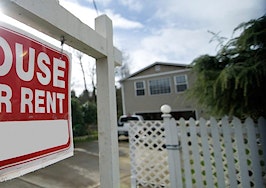- South and Midwestern cities concentrated the list of markets with the biggest opportunity for return.
- Miami vacancy is among the lowest in the country and is forecasted to reach 3.5 percent by the end of 2016.
- 31,000 jobs are expected to be added in Miami, which surpasses the 22,600 jobs added last year.
The multi-family and single-family rental markets are continuing to make headway throughout the nation, according to a report recently released by HomeUnion. While the end of 2015 was somewhat rocky for the U.S. economy, it has regained traction through the start of 2016 to prepare itself for what economists believe to be a promising year.
An interest rate hike is still expected from the Federal Reserve following the late 2015 bump that was the first increase seen in the past decade. On top of that, employement and the labor market are having a good year as well.
Rental demand and investor opportunity
By calculating job growth figures and supply and demand in cities throughout the nation, HomeUnion ranked the top cities on combination of investment opportunity and return in 2016. Jacksonville took the top spot, followed by Charlotte and Indianapolis.
 Southern and Midwestern cities were represented on the list for biggest opportunity, with Milwaukee also getting a top spot. Fort Lauderdale, San Antonio and Phoenix also ranked high for investment markets.
Southern and Midwestern cities were represented on the list for biggest opportunity, with Milwaukee also getting a top spot. Fort Lauderdale, San Antonio and Phoenix also ranked high for investment markets.
Few cities made both lists for opportunity and high demand of rental units. Fort Lauderdale was the only market to snag a spot on both.
The Bay Area made a big apperance on the list of high-demand markets, with San Franciso, San Jose, and Oakland all pricing high and having strong demand for rentals.
Milwaukee, Tampa and Indianapolis were all ranked as high-yield real estate markets. While San Antonio didn’t make the list of where investors are prone for high returns, its nearby neighbor, Houston, did make the cut.
 And for markets with a high upside potential, Fort Lauderdale ranked in the no. 1 spot. Baltimore, Chicago, Miami and the Inland Empire are also markets where the possible earning potential is strong.
And for markets with a high upside potential, Fort Lauderdale ranked in the no. 1 spot. Baltimore, Chicago, Miami and the Inland Empire are also markets where the possible earning potential is strong.
Nationwide in 2015, 300,000 of the 460,000 new households created were rental properties, taking vacancy to an increadibly low rate below 5 percent, which is widely considered full occupancy.
Miami rental market conditions
Miami’s market continues to get hotter and hotter. According to HomeUnion, the southern metropolis has seen a record-breaking number of visitors coming for the city’s world-class amenities and attractions over the last two years– and investors see the opportunity.
Home prices are reaching pre-recession levels, HomeUnion says, but the median price of investment properties is still 32 percent lower than in 2005. Vacancy is among the lowest in the country and is forecasted to reach 3.5 percent this year.
[Tweet “Miami vacany rate is at 3.5 percent, among the lowest in the nation”]
By the end of 2016, rents are expected to climb 2.6 percent in Miami to reach $2,043 per month. Jobs are expected to grow as well. By the end of 2016, payrolls are expected to expand by 2.7 percent with 31,000 jobs added, which is more than 25 percent higher than last year’s 22,600.










